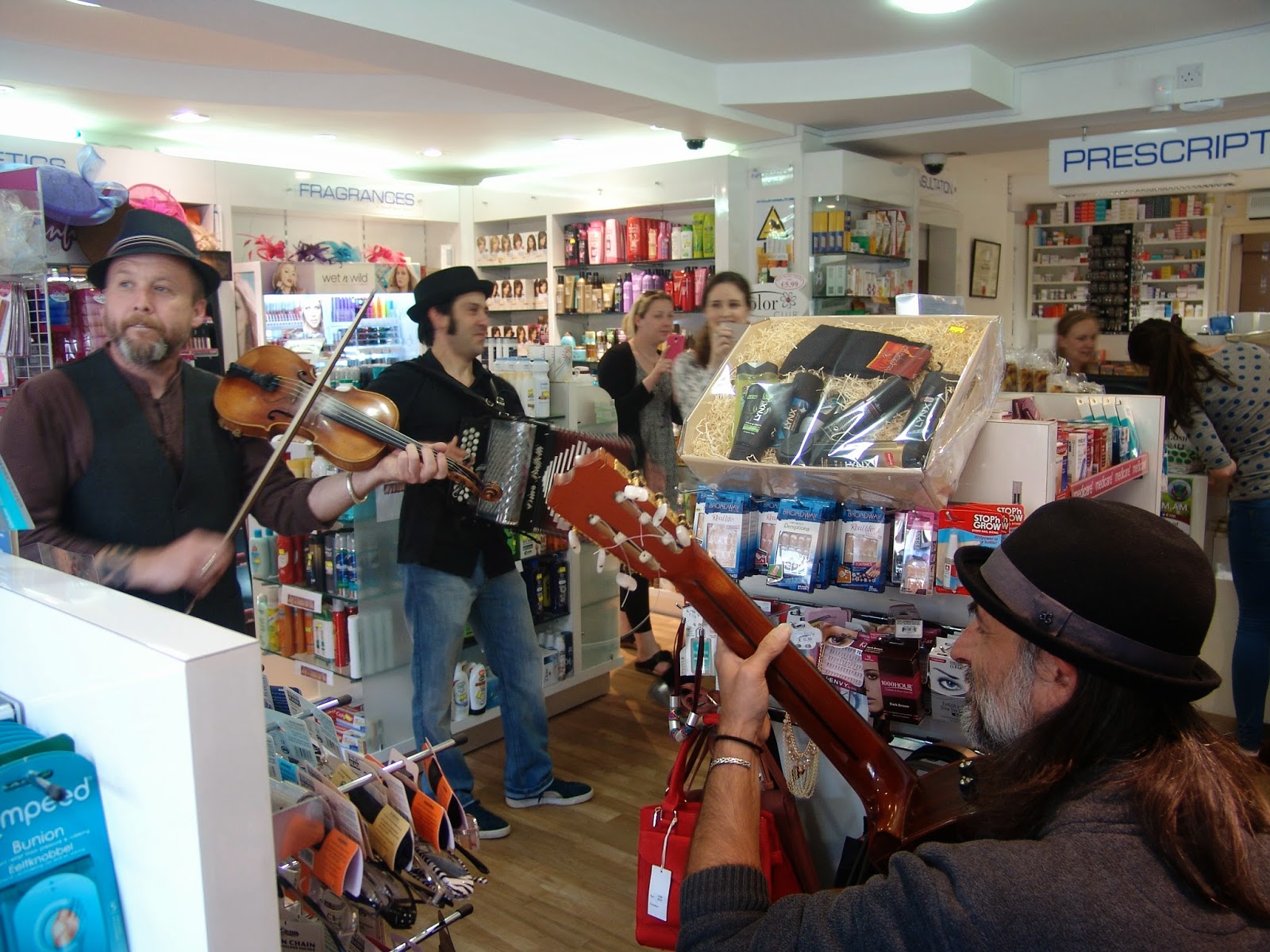COMMUNITY SPOTLIGHT
 |
| A Troubadour? In Headford? |
So you're probably thinking, what the heck is a troubadour?
Technically,
troubadours were medieval poets who performed songs and poems principally in
southern France from the 11th to 13th centuries. Sometimes they wandered around
and sang or recited poetry. Frequently, they sang about love and were paid with a
meal and a bed for the night.
That’s sort of what Miquel Barcelo, Headford’s
self-proclaimed ‘troubadour,’ does. He sings, plays instruments, and tells
a story here and there. Actually, he has a lot of stories to tell.
It all started in Majorca, where Miquel grew up, then on to
Paris, where he fell in love (as you do), and then to multiple other places—Spain,
Italy, Texas—before he finally settled in Headford.
While in Paris, he studied at the Jacques Le Coq Theatre
School, where he met his wife, Judith. ‘I liked Irish music, and she does Irish
dance, and . . . ’ his hands go up as if their union was an inevitable love
story. Now his wife teaches theatre at Claran National School three times a
week, and Miquel wanders around and performs, at schools, at meetings . . . even
in barber shops.
On a warm Friday in early June, he’s entertaining the Sean Cáirde
crowd with stories and songs from his native land, told with a strong
Castilian accent. ‘My father told me, never trust the sea when it is calm. . . But,
if you are in a storm, never look back.’ His words obviously transcend any
language or accent barrier because the responses he gets are soft sounds of
agreement and white-headed nods of approval.
Miquel explains his theory that stories are slow,
necessarily spoken, but ‘words are not the main element. I’m always trying to
cross cultures.’
And he’s right about words not being so important. Back in
the 1960s, psychology researchers Mehrabian and Wiener decreed that 55% of
communication is body language. Words themselves are responsible for only 7% of
how we communicate with each other.
So, even though Miquel’s performances mix languages, they incorporate
everyone around him. He says he gets inspiration from his audience or uses
their suggestions. ‘I never tell a story the same way. Anything can happen in
the middle.’
Obviously, this twenty-first century troubadour is a bit
different from his medieval counterpart, but Miquel feels he is carrying on an
ancient tradition. Thanks to a County Council grant, Miquel is able to perform
all over the Headford area. ‘Through stories and music, I’ll find a dialogue
with the community I’m living in.’
While he admits his work can be unexpected, sometimes not one
hundred percent politically correct, and sometimes very direct, he says this is
the nature of what he does. His goal is to surprise people with entertainment. And
that’s exactly what he did last Saturday. To celebrate the Summer Solstice,
Miquel, along with fellow musicians Tony O’Reilly and Felip Carbonell, walked around Headford, peppering
the town with music and song, first in the Barber Shop . . .
then in the butcher's, the pharmacy . . .
. . . at cafes . . .
serenading shoppers at Joyce's . . .
. . . and up and down the street.
Miquel says his performances are meant to ‘make a break in
people’s lives. When I’m gone you can go back to your routine. Or maybe not.
Maybe you’ll think . . .’
Everywhere they went last Saturday, these musicians shared
joyous music and song, and they were paid with enthusiastic welcomes, smiles
and cups of coffee. Many people recorded the performances with their phones.
Children danced and passers by stopped and stared. Even dogs seemed entranced.
As Headford’s travelling entertainer, Miquel has words of
advice for all of us. Words that seem apt, not just for audience members, but
for life in general. ‘A lot of times, Irish audiences hear something different
and they get tense. There’s a delay while people think things through before
they let themselves react. But the kids, they know how to have fun.’ He speaks
passionately, gesticulating to make his point. ‘Just . . . let yourself go and
enjoy!’
























